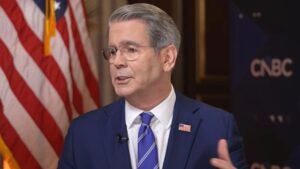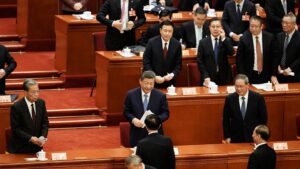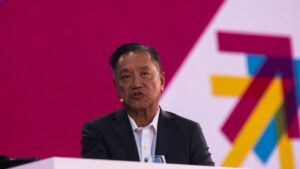“India Insulated Itself From Rising Fuel Prices By Reducing Tax”: Minister


India’s procurement of crude oil from Russia surged significantly in the last over one year. (File)
New Delhi:
The discount on Russian crude oil is not as much now as it used to be in the initial period after the Ukraine conflict began, Oil Minister Hardeep Puri said on Friday while asserting that the government ensured affordability and availability of petroleum products notwithstanding disruptions in the global energy market.
In an interaction with a group of reporters, he said India insulated itself from rising fuel prices and that the hike in prices of petrol and diesel in the country in the last two years has been marginal compared to several large economies and neighbouring nations.
The Union minister also hit out at the opposition for attacking the government on oil prices saying the states ruled by it are selling petrol and diesel at higher rates compared to those governed by the BJP as they significantly slashed the VAT on the fuel.
“The only parts of our political system that talk about high petrol and diesel prices are the ones who have not reduced their VAT (value added tax),” he said.
Asked whether the government would cut prices of petrol and diesel, Mr Puri said it depends on the global crude prices.
The oil minister also hit out at the opposition for its approach in Parliament on discussion on Manipur. “In a democracy, the opposition must be allowed to speak, but I think they have made up their mind that they are going to be in the opposition for all their lives.”
Delving into the energy sector, Mr Puri said India has diversified its sources of crude procurement from 27 to 39 countries. He noted that energy consumption in the country is growing at 3 per cent as against 1 per cent globally.
The oil minister also said that India is in the process of expanding its oil refining capabilities.
India is already the world’s fourth largest refining hub and we are going to end up as the second largest refining place, Mr Puri said while highlighting the Modi government’s success in areas of trade and foreign policy.
He said there are plans to expand refining capacities to about 450 million metric tonnes a year, which currently stands at 252 million metric tonnes, with addition of another 50 million metric tonnes being planned.
“PM Modi’s governance is transforming our foreign policy, trade policy, energy policy,” he said.
Asked whether the government plans to slash the petroleum prices as it is procuring crude from Russia at a discounted rate for over one year, Mr Puri did not give a direct reply and said the discount is not that much now.
“There were good discounts initially and then they started raising prices…Now the discount is not that much,” he said.
India’s procurement of crude oil from Russia surged significantly in the last over one year.
Mr Puri also highlighted how the government managed to keep the oil prices under affordable range.
Even during the most volatile period in the energy markets, PM Modi ensured “availability, affordability and sustainability” of fuel by reducing central excise twice, he said.
Mr Puri said the increase in petrol prices in India between June 2021 and June 2023 was 2.36 per cent, while the hike in Pakistan, Bangladesh, Sri Lanka and Nepal during the period was 50.83 per cent, 30.11 per cent, 79.61 per cent and 42.39 per cent respectively.
Citing data of large economies, Mr Puri said the rise in petrol prices during the period in the US was 30.15 per cent while the hike in France, Germany, Italy, Spain, the UK and Canada was 22.67 per cent, 19.08 per cent, 14.68 per cent, 17 per cent, 10.93 per cent and 24.17 per cent respectively.
In the case of diesel, he said the increase in India was 4.97 per cent while the increase in Pakistan was 40.81 per cent, Bangladesh 50.11 per cent, Sri Lanka 130.65 per cent and it was 130.65 per cent in Nepal.
Mr Puri said the hike in diesel prices in the US in that period was 29.31 per cent, while it was 19.47 per cent in France, 17.50 per cent in Germany, 14.57 per cent in Italy, 16.38 per cent in Spain and 21.20 per cent in Canada.
“India has been able to insulate itself from the rising fuel prices by taking several steps, including reduction in the excise duty by the Centre,” he said.
Questioning the opposition’s criticism of the government on oil prices, he said while the rate of per litre petrol in Guwahati in July was Rs 98.03 (BJP-ruled state), the cost in Kolkata was Rs 106.03 (Trinamool-ruled).
Similarly, Mr Puri said the price of per litre petrol in Lucknow in July was Rs 96.57 while it was Rs 101.94 in Bengaluru.
India has strategically diversified its import basket from only 27 countries to 39 countries, he said, adding the country has increased ethanol blending in petrol from 1.53 per cent in 2014 to 11.7 per cent in June 2023.
On India’s overall growth trajectory, Mr Puri said India is the fastest-growing major economy in the world and that according to the IMF, the country will contribute 15 percent of the global growth in 2023.
It is estimated that India’s GDP will cross $3.75 trillion in 2023, he said and cited the World Bank data to note that the figure was $2.04 trillion in 2014.
Highlighting outcome of the Modi government’s policies, Mr Puri citing a report by NITI Aayog, said 135 million people excited “multidimensional poverty” between 2015-16 and 2019-21.
(Except for the headline, this story has not been edited by NDTV staff and is published from a syndicated feed.)
Featured Video Of The Day
P Chidambaram Hopes Speedy Restoration Of Rahul Gandhi’s MP Status





